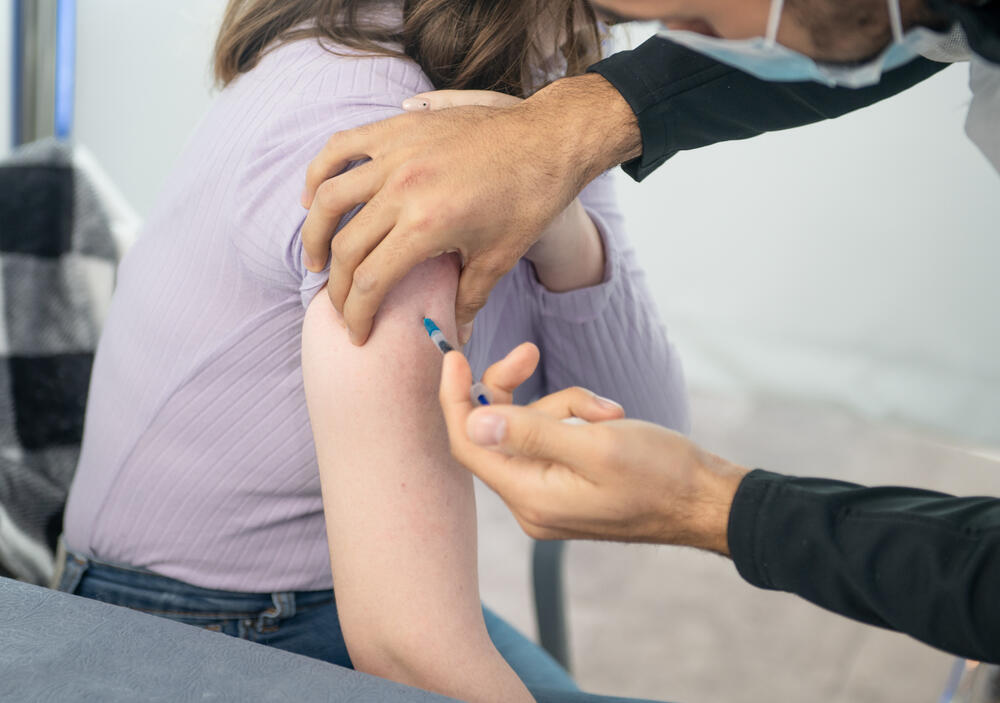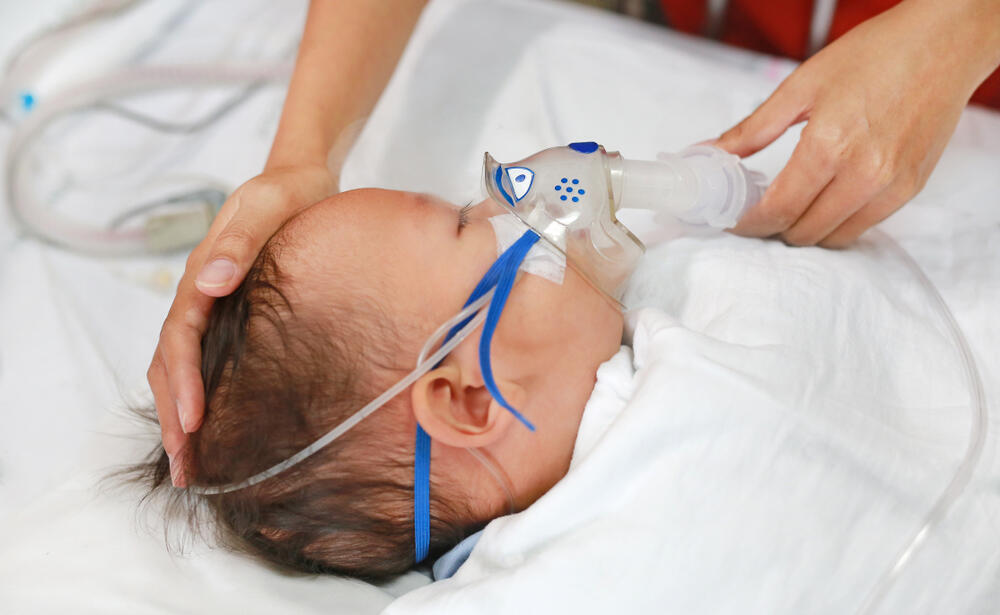As viral diseases commonly associated with winter are on the rise globally, experts are grappling with the impact of frequent climate changes, which also seem to be affecting the behavior of viruses.
More stories:
While COVID-19 symptoms are well-understood, distinguishing between COVID and other viral infections can be challenging. To navigate through these health uncertainties, please refer to the following guide.
After a year of relative quiet, COVID is re-emerging with a new family of variants. We haven't yet gotten used to the Eris and Pirola variants, and already a new strain—FL.1.5.1, which has been named Fornax (after a constellation)—is spreading.
Updated vaccines, expected to arrive in Israel in the coming weeks, are supposed to protect against the new variants. When they arrive, they will be administered along with the flu vaccines—each vaccine in a different shoulder. For now, it is recommended to get vaccinated against the flu; the vaccines are available at healthcare providers.
The symptoms of COVID-19 today are relatively mild and similar to previous strains: regular or high fever, runny nose, loss of smell and taste, fatigue, coughing and muscle aches. COVID-19 is primarily diagnosed through at-home tests.
If you exhibit COVID-19 symptoms and have a positive at-home test, the guidelines are to stay home for the duration of the symptoms, update your attending physician, and, for those in high-risk groups, obtain a prescription for the drug Paxlovid from your doctor if needed.
It's important to remember that COVID-19 is increasingly leading to more cases of long COVID—a chronic condition that may last up to two years and includes symptoms like loss of smell and taste, brain fog, fatigue and other issues. Therefore, vaccination is advisable and recommended.
The flu
The influenza virus, which had skipped Israel two years ago, reappeared last year with full force, with thousands being hospitalized due to flu-related illnesses, including hundreds of children and pregnant women.
Lab tests showed that the majority of patients were infected with the A/H3 influenza strain, which is included in the flu vaccine. Unfortunately, the flu vaccination rate is very low each year.
The influenza virus can lead to severe illnesses such as pneumonia, other respiratory complications, myocarditis and even death. The virus is transmitted through contact with respiratory secretions.
Symptoms include fever, cough, muscle aches, fatigue, sore throat, vomiting and diarrhea. The illness usually lasts about a week. The best way to prevent infection is through vaccination, which is currently available for free at all healthcare providers, administered directly on-site by a nurse, without the need for a referral or prescription and at no cost.
Since it is a viral disease, treatment options for the flu are limited. The possible medication for severe cases is Tamiflu, designed to prevent complications in patients who have contracted the deteriorating illness and are not vaccinated.
If your illness is not severe, it is advisable to avoid going to clinics or hospitals and to use the telephone consultation services provided by the nurses at healthcare providers. For patients at risk of severe illness, Tamiflu is administered at the onset of the first symptoms, even before the disease progresses and could pose a risk.
RSV
Respiratory Syncytial Virus is one of the most active viruses during the winter months and is highly prevalent among infants, children and the elderly.
Typically, the virus causes a mild illness with symptoms including fever, runny nose and cough. Usually, these symptoms disappear after about three days. However, the illness can worsen and develop into a viral pneumonia known as bronchiolitis.
This disease causes severe shortness of breath and often necessitates hospitalization. In severe cases, the infant may be transferred to an intensive care unit. The disease also causes noticeable morbidity among the elderly and manifests as noticeable shortness of breath and coughing.
In Israel, existing vaccines are given to premature babies or newborns, and soon the Health Ministry is expected to approve new vaccines for infants and adults that have been approved globally.
The only treatments available in a hospital setting aim to alleviate the suffering of the patient and may include oxygen therapy, sometimes administered using an innovative device called a vapotherm, which warms and humidifies the oxygen, as well as inhaled steroid medications.
Adenovirus
The adenovirus family includes 57 strains and a very wide range of diseases according to the different strains. Adenoviruses are very common during the winter season and spread quickly, usually through saliva and nasal discharge.
The viruses typically cause respiratory tract infections, throat inflammation, bronchial infections, viral eye infections, digestive tract infections leading to diarrhea and vomiting, urinary tract infections and in rarer cases—meningitis and encephalitis (brain inflammation).
Currently, there is no vaccine or medication against the virus. The primary medical treatment is based on supportive care for the accompanying symptoms, such as fever reduction and pain relief.
When should you go to the emergency room?
- In cases of prolonged fever lasting over three days, or fever that does not respond to fever-reducing medications like acetaminophen or ibuprofen.
- In any situation of shortness of breath accompanied by rapid breathing (in children, over 40 breaths per minute; in adults, over 20 breaths per minute), inability to complete a sentence while at rest, or blue discoloration of the lips.
- In any situation of confusion, impaired consciousness, or loss of consciousness.
- When there is suspicion of dehydration: not urinating for over 10 hours, multiple instances of vomiting, or multiple episodes of diarrhea.
- In any situation where fever is accompanied by a spotty red rash on the skin (petechiae) that doesn't fade upon pressure.







